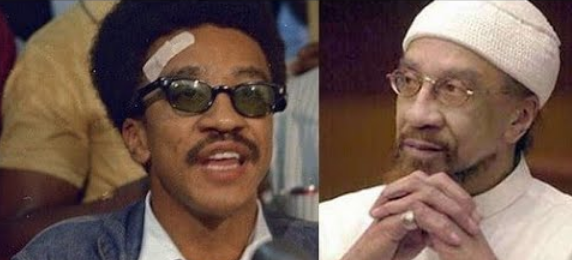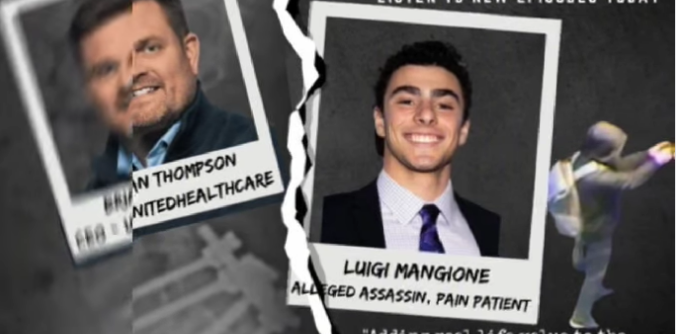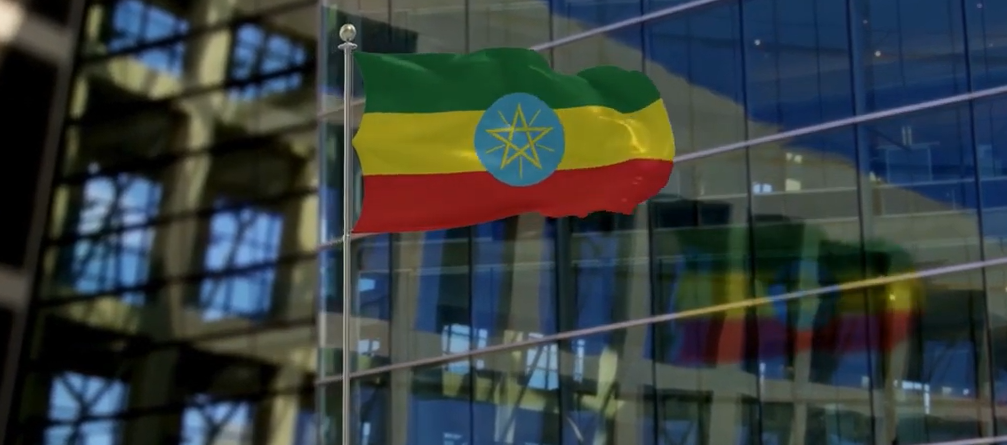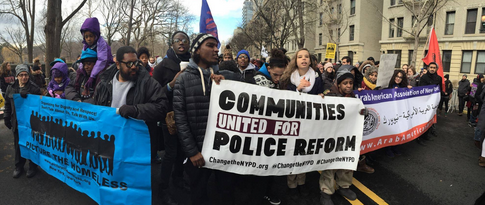Officer Groubert
[Speaking Truth To Power]
Recently, the family of police shooting victim Levar Jones, and Sean Groubert, the former South Carolina State Trooper who shot him, both released statements regarding the incident.
The family of Jones, who is lucky to be alive, characterized “the trauma” as being “indescribable” and talked about how the shooting has “changed forever” their lives. In Officer Groubert’s statement—he makes a feeble attempt to defend the indefensible—by claiming Jones who had been inside his car “jumped out, stared at me” and that he “saw something black in his hands.”
How long will police who perpetrate unjustified shootings of Black men be allowed to invoke the “I felt threatened by a Black man” defense?
As the Black community comes to grips with the spate of brutal beatings and unjustified killings by trigger-happy cops, nationwide, we must include the troubling case of Levar Jones, who was shot by former South Carolina State Trooper Groubert.
On Sept 4, 2014, Groubert shot Jones after pulling him over, into a gas station, for a supposed seat-belt violation. Jones was shot after he retrieved his wallet from the car to obtain his driver’s license—which Groubert had ordered him to get.
The shooting—caught on the police car dash-cam—clearly shows Jones did nothing wrong and was, in fact, just trying to comply with Trooper Groubert’s request. However, Groubert is now claiming he shot Jones because Jones “stared at” him, “kept coming at” him and because he “saw something black in his hands.”
In effect, Officer Groubert is telling us he was scared of this Black man and so he shot him; period. And that in itself should be sufficient defense.
The video recording from Groubert’s own dash-cam repudiates his lies.
It is truly ironic, given the brutal history Blacks have faced in White America that so many Whites claim to be so fearful of Blacks. But we’ll revisit this oddity later.
How long will we allow backward bigots—who hide behind badges of authority—to kill Black people and then claim they were justified because of some irrational fear inculcated in them because of their prejudice?
This week, thankfully, Michael Dunn was convicted of the murder, in Florida, of 17-year-old Jordan Davis—killed on Nov. 23, 2012 after Dunn, in a fit of racist rage, fired into a car Davis was sitting in because he didn’t like the music the teenager was playing.
Dunn claimed he was threatened by Davis and feared for his life when he fired into the car. However, Dunn’s former girlfriend testified of Dunn complaining about the “thug music” that was playing in the car Davis was sitting in.
It is crystal clear it was prejudice that motivated Dunn to firing on Davis and his friends.
Should racists be allowed to use “fear”, feigned or otherwise, to inoculate themselves and justify the execution of Black males? Given the horrific history of legacy and police brutality in modern times, would juries and judges accept a defense by Black men after taking the lives of White men that they were also motivated by “fear”?
We all know the answer to that question; an emphatic no. So why should alleged “fear” of Black men by White males be acceptable defense?
Officer Groubert can’t be absolved of responsibility for taking Levar Jones’ life.
In an eloquent statement, Jones’ family talks about being “thankful that we have another day of life“ while pointing out that Levar Jones was shot “based on no trigger or instigation except the color of his skin.”
Indeed, Black skin is the only thing required to cause cops or citizens from the White side of town, to shoot to kill whenever they claim they feel “fear,” or feel “threatened” by the presence of Black people.
In similar fashion to the Amadou Diallo case, where an unarmed Guinean immigrant in New York city was killed in a hail of 41 shots by police officers, Groubert also insinuated he perceived Jones’ wallet to be possibly a gun.
Fortunately, for Jones, he escaped most of the shots from Groubert’s wild shooting—and so unlike Diallo he is still among the living.
The statement from the Jones family highlighted another crucial point, when they said “there are many others whose stories are untold absent video surveillance.” Indeed, how many more stories like these are out there where cops are violating the rights of Black people, nationwide?
Every encounter between police officers and citizens must be video recorded either through body cameras or dash-cams.
Consider for a minute another horrible South Carolina case of police injustice; an incident with 68-year-old Earnest Satterwhite. Mr. Satterwhite, a Black great-grandfather was killed in his driveway after being chased by North Augusta Public Safety Officer Justin Craven.
On February 9, Officer Craven followed Mr. Satterwhite for nine miles beyond city limits in Edgefield County. Edgefield County deputies, who joined in the chase, reportedly told Officer Craven to let them handle the chase—probably, in light of jurisdictional issues involved.
But, Officer Craven did the opposite—and the deputies stated Officer Craven ran up into Mr. Satterwhite’s home driveway and fired several shots into the driver’s side of Satterwhite’s car door killing him. Yet, for such an egregious act Officer Craven was only charged with “misconduct in office,” a minor charged usually used to reprimand officers who take bribes.
Police have refused to release details of the investigation into the case.
Time and again to escape justice all an officer who has killed an innocent Black man has to do is invoke “fear” for his life. This same excuse is used by murderers like George Zimmerman and Michael Dunn; it worked for Zimmerman partly due to a bungled prosecution but not for Dunn.
Apologists who justify the crimes of White police officers against Black people often hide behind the fallacious notion that Black people have a propensity for violence. If that were really true wouldn’t we see retaliatory killings by Black people? Wouldn’t that be the logical response?
Police policies are shaped by sociologists like Professor George Kelling who is with the “conservative” Manhattan Institute. He is one of the fathers of “broken windows,” policing philosophy which dictates that “minor” crimes must be aggressively interdicted to pre-empt later more serious crimes by the perpetrators.
Promoting this mind-set among officers who are already regard African American males in a hostile manner leads to predictable consequences. Witness, for example, the aggressive approach of NYPD officer Daniel Pantaleo towards Eric Garner, who could have been arrested alive if that had been Pantaleo’s intention.
Prof Kelling is a consultant to the NYPD and both Mayor Bill de Blasio and police commissioner Bill Bratton are fans of “broken windows.” There is little consideration for the “broken lives.”
The aggressive policing are justified by crime “statistics” generated by heavy-handed policing of only police in Black neighborhoods. For example, its established that Whites consume more drugs than Blacks; this is not reflected in the arrest and prosecution records. This should offer an understanding on what “statistics” really mean.
It’s meaningless to discuss crime without factoring in unemployment, hiring discrimination, and deprivation of economic opportunities. Yet well educated people pretend as if they are oblivious to this reality.
The last few months have exposed to the world the deep racism embedded in America’s “criminal justice” system. So much so that President Obama mentioned Ferguson in his address before the United Nations.
The conviction of Michael Dunn is an important outcome as we continue to fight for real justice.
Officer Groubert has been fired for his unjustified shooting Mr. Levar Jones. He should be tried and convicted for his crime.
Similarly, officer Darren Wilson should be held accountable and convicted for killing Michael Brown in Ferguson.
Please post your comments to this article on our website







